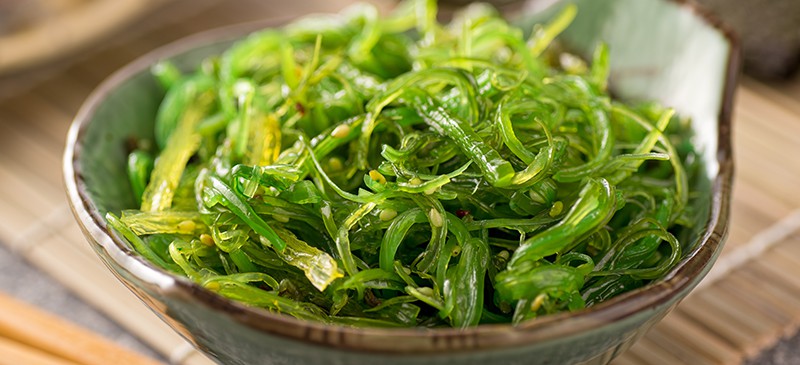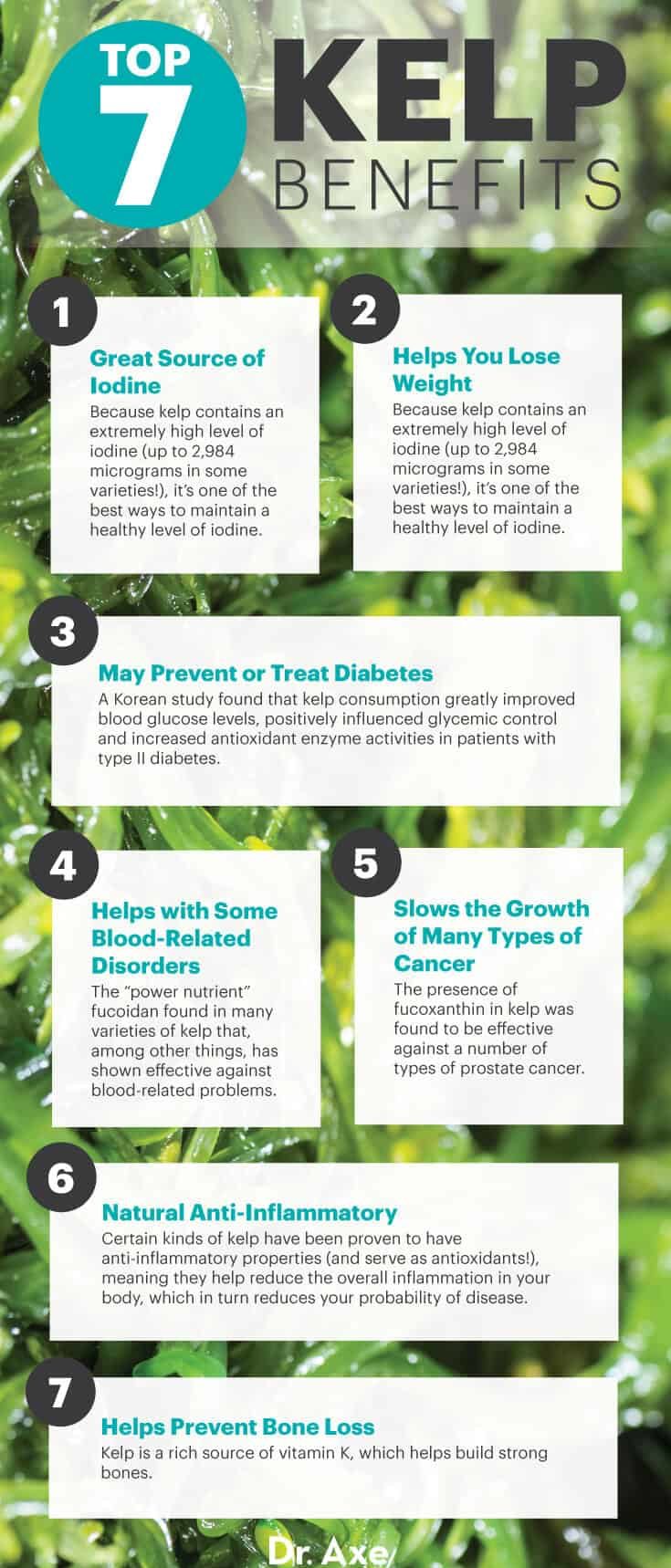This Dr. Axe content is medically reviewed or fact checked to ensure factually accurate information.
With strict editorial sourcing guidelines, we only link to academic research institutions, reputable media sites and, when research is available, medically peer-reviewed studies. Note that the numbers in parentheses (1, 2, etc.) are clickable links to these studies.
The information in our articles is NOT intended to replace a one-on-one relationship with a qualified health care professional and is not intended as medical advice.
This article is based on scientific evidence, written by experts and fact checked by our trained editorial staff. Note that the numbers in parentheses (1, 2, etc.) are clickable links to medically peer-reviewed studies.
Our team includes licensed nutritionists and dietitians, certified health education specialists, as well as certified strength and conditioning specialists, personal trainers and corrective exercise specialists. Our team aims to be not only thorough with its research, but also objective and unbiased.
The information in our articles is NOT intended to replace a one-on-one relationship with a qualified health care professional and is not intended as medical advice.
Kelp: the Anti-Inflammatory, Iodine-Rich Seaweed
July 27, 2023

Seaweed: It’s not just for sushi anymore. In fact, kelp, a form of seaweed, has made its way into kitchens of health-conscious people all over the world — and that’s perfectly OK with me.
Considered by many to be a superfood because of its wide variety of nutrients, kelp has been a staple of several Asian cultures for centuries. While its popularity in the western world is a more recent event, as more people discover the many benefits this vegetable has to offer, it’s quickly becoming part of a healthy, balanced diet for a large number of Americans as well.
This seaweed is effective in weight loss, supports thyroid health, has been proven to reduce the risk of many forms of cancer and even keeps your bones strong. Get to know the power of mighty kelp.
What Is Kelp?
So, what is this superfood, exactly? Kelp belongs to the brown algae class (Phaeophyceae) and is specifically in the order Laminariales. There are probably around 30 varieties or “genera” included under the general classification of kelp.
Visibly, it’s a large seaweed that grows in shallow, underwater forests. It’s often surrounded by plentiful marine and plant life and is estimated to have appeared between 5 million and 23 million years ago. In order to grow, kelp requires nutrient-rich water between 43 and 57 degrees Fahrenheit. It’s known for its rapid growth rate, as some varieties can grow over a foot and a half in 24 hours, eventually reaching heights of up to 260 feet.
In most varieties, the body is made of flat, leaf-like structures known as blades. Blades come out of long “stem” structures, stipes. Finally, the “holdfast” serves as the roots of kelp, anchoring it to the ocean floor.
The largest producer of commercial kelp is currently the country of China. It’s quickly becoming a popular nutritional food, and that makes sense when you see the incredible nutrient content in just one serving.
Here are a few of the most common types of seaweeds and algae that are used as foods and/or supplements:
- Hijiki
- Wakame
- Ogo
- Nori
- Kombu
- Arame
- Dulse
- Sea moss
- Spirulina
- Blue spirulina
- Bladderwreck
Nutrition Facts
One serving of raw kelp (about 28 grams) contains about:
- 12 calories
- 2.7 grams carbohydrates
- 0.5 gram protein
- 0.2 gram fat
- 0.4 gram fiber
- 18.5 micrograms vitamin K (23 percent DV)
- 50.4 micrograms folate (13 percent DV)
- 33.9 milligrams magnesium (8 percent DV)
- 47 milligrams calcium (5 percent DV)
- 0.8 milligram iron (4 percent DV)
- 0.1 milligram manganese (3 percent DV)
Health Benefits
1. Great Source of Iodine
Do you know if you’re eating enough iodine? That’s an important question, because iodine-rich foods help protect you from a dangerous deficiency. Iodine is a vital nutrient that helps support a healthy thyroid, protects against certain kinds of cancer, promotes healthy growth and development in babies and children, and even helps you maintain a healthy brain.
Because kelp contains an extremely high level of iodine (up to 2,984 micrograms in some varieties), it’s one of the best ways to maintain a healthy level of iodine. Studies show that powdered kelp has been used to treat hypothyroidism in patients with severe motor intellectual disabilities, who are at a very high risk of iodine deficiency.
2. Helps You Lose Weight
Not only is kelp a nutrient-rich food that’s beneficial to any diet, but it also has specific fat-fighting properties. A protein found in most varieties, known as fucoxanthin, has been shown to significantly reduce fat tissue — one of the reasons it’s recommended as a healthy weight loss supplement. One study out also found that a combination of pomegranate seed oil with fucoxanthin promoted weight loss and increased liver function. (3)
Another way kelp can be helpful when trying to lose weight fast is by the presence of particular molecules known as alginates. These alginates are prevalent in some varieties of kelp more than others. One study studied the effect of kelp on pancreatic lipase, finding that its consumption reduced this process by which the pancreas overprocesses fat and stores too much in the body. Instead, this seaweed was a vital factor in helping the body expel fat via excrement, rather than absorb large amounts. Essentially, this means it’s considered a lipase inhibitor.
3. May Prevent or Treat Diabetes
Those at risk for or who have diabetes may also find kelp a welcome addition to their diabetic diet plan. A Korean study published in Nutrition Research and Practice found that kelp consumption greatly improved blood sugar levels, positively influenced glycemic control and increased antioxidant enzyme activities in patients with type II diabetes.
4. Helps with Some Blood-Related Disorders
There’s a power nutrient found in many varieties of kelp that, among other things, has shown effectiveness against blood-related problems. It’s called fucoidan.
Fucoidan has shown effectiveness in preventing blood clots that can lead to dangerous health problems, including stroke and heart attack. It’s so effective, in fact, that researchers cite it as having potential to be used as an oral antithrombotic agent, potentially reducing the need of prescription drugs to treat blood clotting problems.
This may be relevant especially to those suffering from or at risk for diabetes, as common diabetes symptoms includes excessive clotting — making this brown seaweed a double-whammy on diabetes. Fucoidan also protects cells in your body from ischemic damage, meaning damage caused by improper levels of blood flow to certain parts of the body.

5. Slows the Growth of Many Types of Cancer
Multiple nutrients in kelp function in tandem to give you protection against cancer. The presence of fucoxanthin was found to be effective against a number of types of prostate cancer. In addition, fucoxanthin can help remove drug resistance in cancer patients undergoing dangerous chemotherapy treatments, thereby reducing the amount of harmful drugs introduced into one’s system in order to treat cancer.
When it comes to cancer-fighting nutrients, fucoidan is now considered one of the most powerful. Studies on fucoidan have found that it causes cancer cells to die (a process known as “apoptosis”) in leukemia, colon, breast and lung cancer. It’s the fucoidan and fucoxanthin combo that makes this sea vegetable one of the most effective cancer-fighting foods.
6. Natural Anti-Inflammatory
As a general defense against most diseases, it’s often recommended to follow a diet rich in anti-inflammatory foods. Inflammation is at the root of most diseases, and it’s hypothesized that chronic inflammation may be caused by an overactive immune system, flooding the body with dangerous hormones.
Certain kinds of kelp have been shown to have anti-inflammatory properties (and serve as antioxidants), meaning they help reduce the overall inflammation in your body, which in turn reduces your probability of disease. Fucoidan, found in kelp, has also been shown to work as an anti-inflammatory and also to improve cholesterol levels in the blood, responsible for heart conditions.
7. Helps Prevent Bone Loss
Are you at risk for osteoporosis or other bone diseases? Kelp can help. First, it’s a rich source of vitamin K — you get almost a quarter of the daily recommended intake of vitamin K in just one serving. One of the many benefits of vitamin K is its role in creating denser bones that don’t as easily succumb to arthritis and osteoporosis. It’s also worthwhile to note that if you’ve been on antibiotics lately, you might need to increase your vitamin K intake to avoid vitamin K deficiency.
However, people on blood-thinning drugs ought to avoid extra vitamin K, as it can affect how the drugs work.
Fucoidan also contributes to healthy bones. Low molecular weight fucoidan helps prevent age-related bone loss and improves the mineral density in bones.
History
It’s possible that ancient people from Asia followed a “kelp highway” when migrating to the Americas. There is a consistently dense line of kelp forests that stretch all the way from Japan, up past Siberia, to Alaska then down the California coastline. Because of the plentiful marine life and nutrients in kelp forests, ancient settlers could have boated between islands and taken advantage of the seaweed as nutrition, as well as fish.
In the 19th century, the word “kelp” was used interchangeably with seaweed burned to create soda ash, also known as sodium bicarbonate. The most common use of this ash is as a water softener.
Kombu is a specific variety of kelp that’s extremely common in Japanese, Chinese and Korean food. The word “kelp” is also used in Chinese as slang to refer to a person who migrated away from his or her family and then returned and is still unemployed.
How to Use
Whether or not you live near the ocean, you can reap the benefits of this sea vegetable. You can purchase dried kelp at most grocery stores that carry whole foods, and it’s recommended to find organic varieties from trusted companies.
One delicious way you can use it is as a noodle substitute in soups. Some stores also offer kelp sprinkles that you can use to substitute for salt or other seasonings on salads.
If you’re interested in going the frugal route and foraging for your own, it’s possible, if you’re near chilly, clean, northern waters. You should never pick the seaweed still attached to its forest, but rather pick it at low tide once it’s been washed up to or near the shore. It’s also important to remember never to pick it near any chemical plants or places where industrial or radioactive waste might exist, as it can absorb minerals from the water it grows in.
You can also find this sea vegetable in supplement form, but be very cautious. Supplements should be bought only from very trusted, established sources in order to get reliably nutritive value from those supplements. It’s always better to eat your nutrients.
Risks and Side Effects
Any time you consume sea vegetables, it’s important to purchase organic because of their ability to absorb whatever minerals are in the water around them. It’s possible to be exposed to heavy metals from kelp obtained from an untrustworthy source.
Another potential concern regarding kelp is the potential to overconsume iodine. While iodine has incredible health benefits, too much of it can lead to issues like hyperthyroidism and certain thyroid cancers. If you’re at risk for these conditions, you should moderate your kelp intake to low levels.
It’s typically recommended to eat kelp rather than taking it in supplement form. Supplements of sea vegetables can be inconsistent in their nutritional value.
Final Thoughts
- There are about 30 different varieties of kelp, which grows in chilly waters throughout the oceans of the world.
- Certain types are the highest nutritional source of iodine available.
- Kelp can assist you in weight loss, improve diabetes risk factors, and prevent or treat certain blood disorders.
- Fucoidan, found in kelp, has been extensively researched for its cancer-fighting and anti-inflammatory properties.
- The high presence of vitamin K in kelp, along with fucoidan, helps to keep your bones strong.
- It’s possible to find fresh kelp in the ocean, but it can be risky.
- It is available in powder, dried, fresh and supplement form. You should always get kelp from a reputable source and preferably eat it rather than take it as a supplement.

